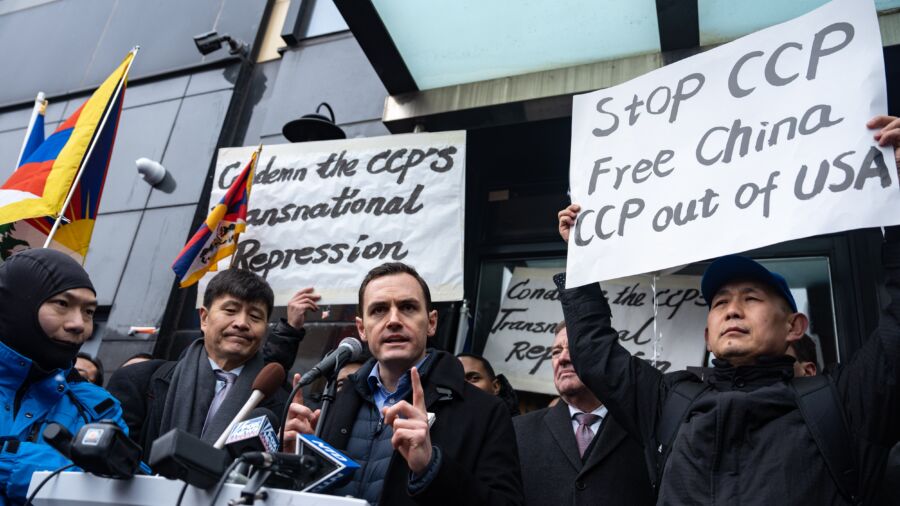New legislation introduced by GOP lawmakers would penalize China in the event of an invasion of Taiwan, amid escalating tensions between Washington and Beijing over a planned meeting between House Speaker Kevin McCarthy (R-Calif.) and Taiwan’s president next week.
The bill, called the STAND with Taiwan Act, is sponsored by Sen. Dan Sullivan (R-Alaska) and Rep. Mike Gallagher (R-Wis.).
“When I met with President Tsai of Taiwan last month, she told me she wakes up every day trying to increase the cost of a PLA invasion. In Congress, we need to help her achieve that goal. We can do so not only by clearing the back-log of foreign military sales to Taiwan and increasing American hard power in the Indo-Pacific, but also by outlining the severe economic costs of an invasion,” Gallagher said in statement.
It states that in the event of an invasion of the self-ruled island, Chinese financial institutions and industrial sectors would be subject to immediate sanctions. In addition, U.S. financial institutions would be prohibited from carrying out any investments in entities that are linked to the Chinese Communist party (CCP) or those it stands to benefit from.
“The STAND with Taiwan Act makes clear that should Xi choose to invade, the U.S. will not hesitate to respond with crippling and comprehensive economic sanctions on any person or company supporting a CCP invasion of Taiwan,” Gallagher stated.
Gallagher currently presides as chairman of the Select Committee on Strategic Competition between the United States and the CCP.
According to Sullivan, an invasion of Taiwan would deliver a devastating blow to the United States and global economy. It would also prompt Asian allies to question America’s commitments, allow the CCP to break out further into the Pacific, and give extraordinary new legitimacy to Xi and his global authoritarian model at home and abroad.
Whether the bill will advance remains currently undetermined as it didn’t pass during the last Congress.
Jurisdiction over the measure lies on House Foreign Affairs Chairman Mike McCaul (R-Texas), who stated that he was not consulted on that bill.
Nonetheless, the introduction of the bill has already proven to be yet another critical moment in Sino-U.S. relations in light of Tsai’s upcoming meeting with McCarthy in Los Angeles.
After landing in New York on March 29, Tsai stated during a dinner banquet that the security of the world hinges on Taiwan’s fate, Bloomberg reported.
In response to the upcoming visit, China warned that such provocation will only reinforce the already tainted relationship between the two countries. Tensions were recently exacerbated by the communist regime’s sending a spy balloon over the continental United States.
The introduction of the bill by Sullivan and Gallagher is meant to ward off any further aggression from the regime against Taiwan.
Sullivan added that Russia’s invasion of Ukraine has proven that comprehensive economic and financial sanctions have the best chance of deterring a conflict.
“No corner of its (China’s) economy will be left untouched by sanctions, from finance to trade to its industrial capacity. We are urging our colleagues to join us in utilizing this critical instrument of American power—our global economic and financial strengths—to strongly deter a CCP invasion and keep the Taiwanese people free”


